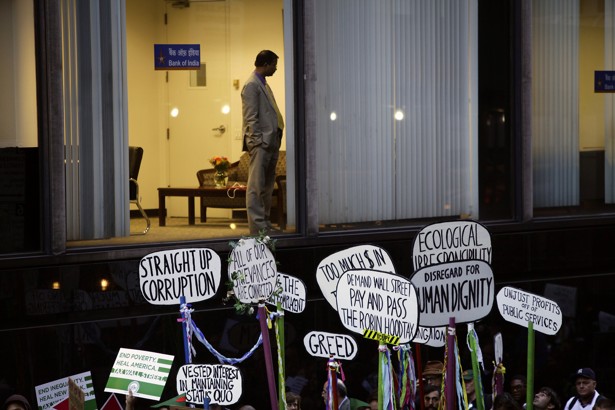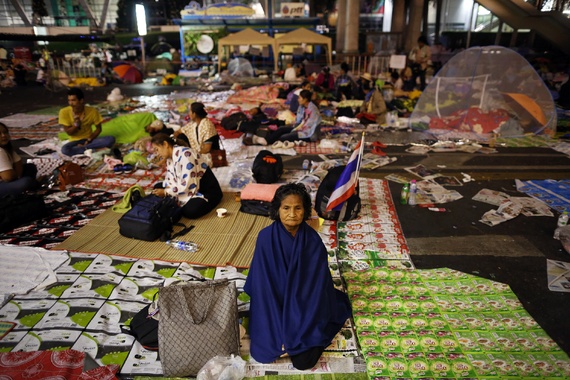This interesting OpEd appeared in The Atlantic
It dates back to April 2014 but most of the analysis would still be the same today. Brexit and Trump election have probably even driven the nail further. Or have things changed? Your comments are most welcome !!
Why Street Protests Don’t Work
How can so many demonstrations accomplish so little?

The hodgepodge groups that participated had no formal affiliation with one another, no clear hierarchy, and no obvious leaders. But social networks helped to virally replicate the movement so that the basic patterns of camping, protesting, fundraising, communicating with the media, and interacting with the authorities were similar from place to place. The same message echoed everywhere: It is unacceptable that global wealth is concentrated in the hands of an elite 1 percent while the remaining 99 percent can barely scrape by.
Such a global, massive, and seemingly well-organized initiative should have had a greater impact. But it didn’t. Though the topic of economic inequality has gained momentum in the years since, in practice it is hard to find meaningful changes in public policy based on Occupy’s proposals. By and large the Occupy movement has now vanished from the headlines.


In today’s world, an appeal to protest via Twitter, Facebook, or text message is sure to attract a crowd, especially if it is to demonstrate against something—anything, really—that outrages us. The problem is what happens after the march. Sometimes it ends in violent confrontation with the police, and more often than not it simply fizzles out. Behind massive street demonstrations there is rarely a well-oiled and more-permanent organization capable of following up on protesters’ demands and undertaking the complex, face-to-face, and dull political work that produces real change in government. This is the important point made by Zeynep Tufekci, a fellow at the Center for Information Technology Policy at Princeton University, who writes that “Before the Internet, the tedious work of organizing that was required to circumvent censorship or to organize a protest also helped build infrastructure for decision making and strategies for sustaining momentum. Now movements can rush past that step, often to their own detriment.”
There is a powerful political engine running in the streets of many cities. It turns at high speed and produces a lot of political energy. But the engine is not connected to wheels, and so the “movement” doesn’t move. Achieving that motion requires organizations capable of old-fashioned and permanent political work that can leverage street demonstrations into political change and policy reforms. In most cases, that means political parties. But it doesn’t necessarily mean existing parties that demonstrators don’t trust to be change agents. Instead, as I have written elsewhere, we need new or deeply reformed parties that can energize both idealists who feel politically homeless and professionals who are fully devoted to the daily grind of building a political organization that knows how to convert political energy into public policies.
As many have noted, social media can both facilitate and undermine the formation of more effective political parties. We are familiar with the power of social media to identify, recruit, mobilize, and coordinate supporters as well as to fundraise. But we also know that clicktivism and slacktivism undermine real political work by creating the feel-good illusion that clicking “like’’ on a Facebook page or tweeting incendiary messages from the comfort of one’s computer or smartphone is equivalent to the activism that effects change.
What we’ve witnessed in recent years is the popularization of street marches without a plan for what happens next and how to keep protesters engaged and integrated in the political process. It’s just the latest manifestation of the dangerous illusion that it is possible to have democracy without political parties—and that street protests based more on social media than sustained political organizing is the way to change society.






